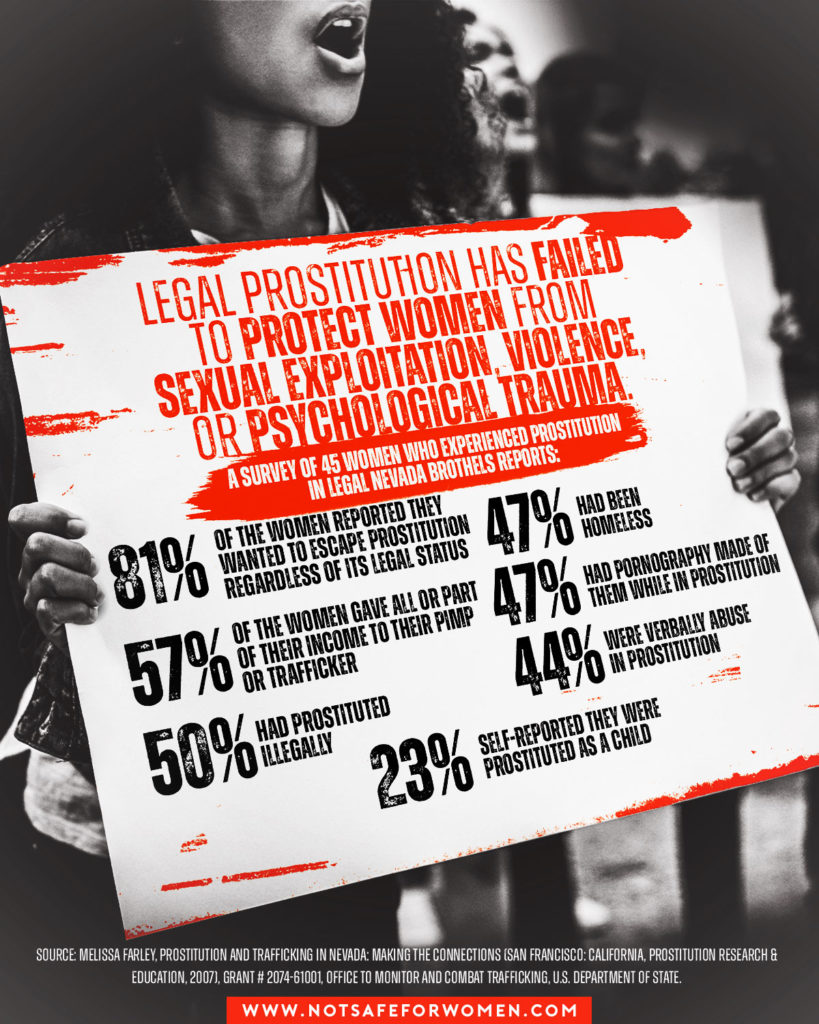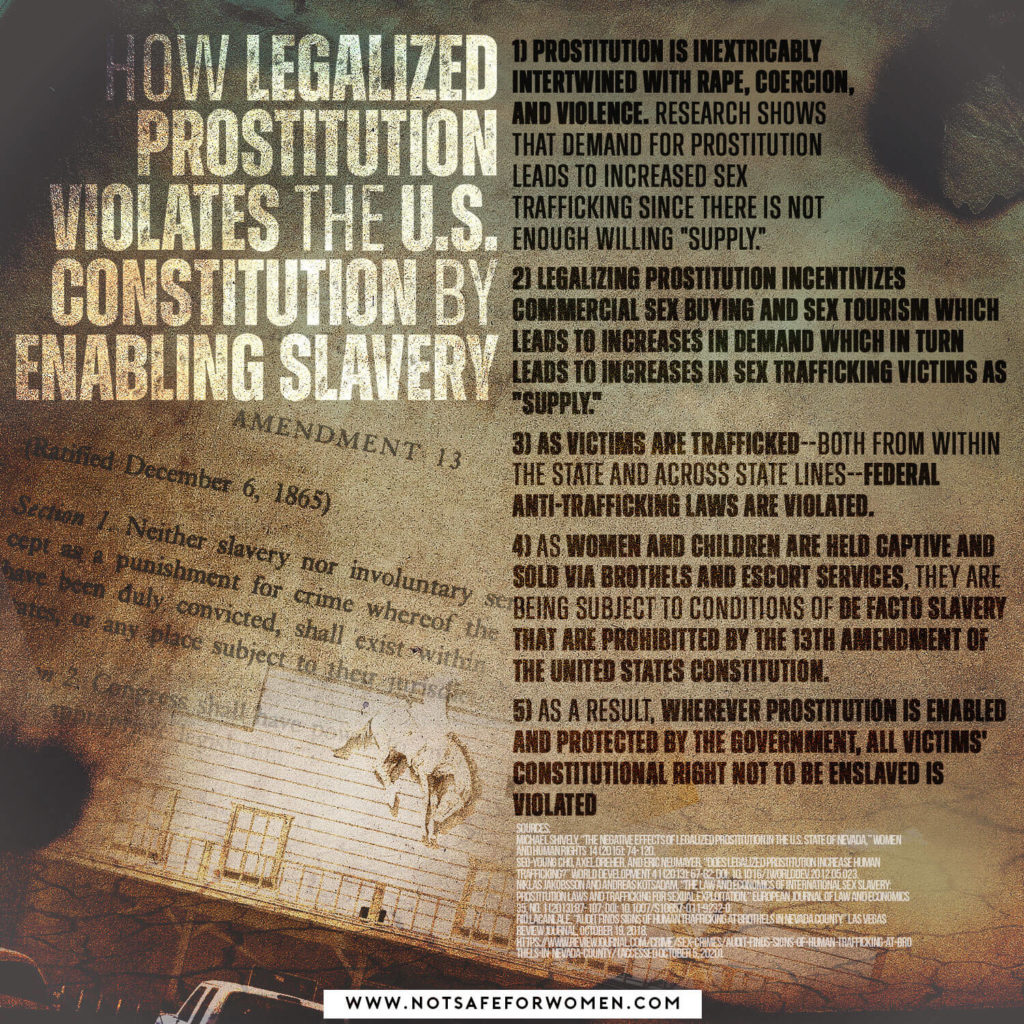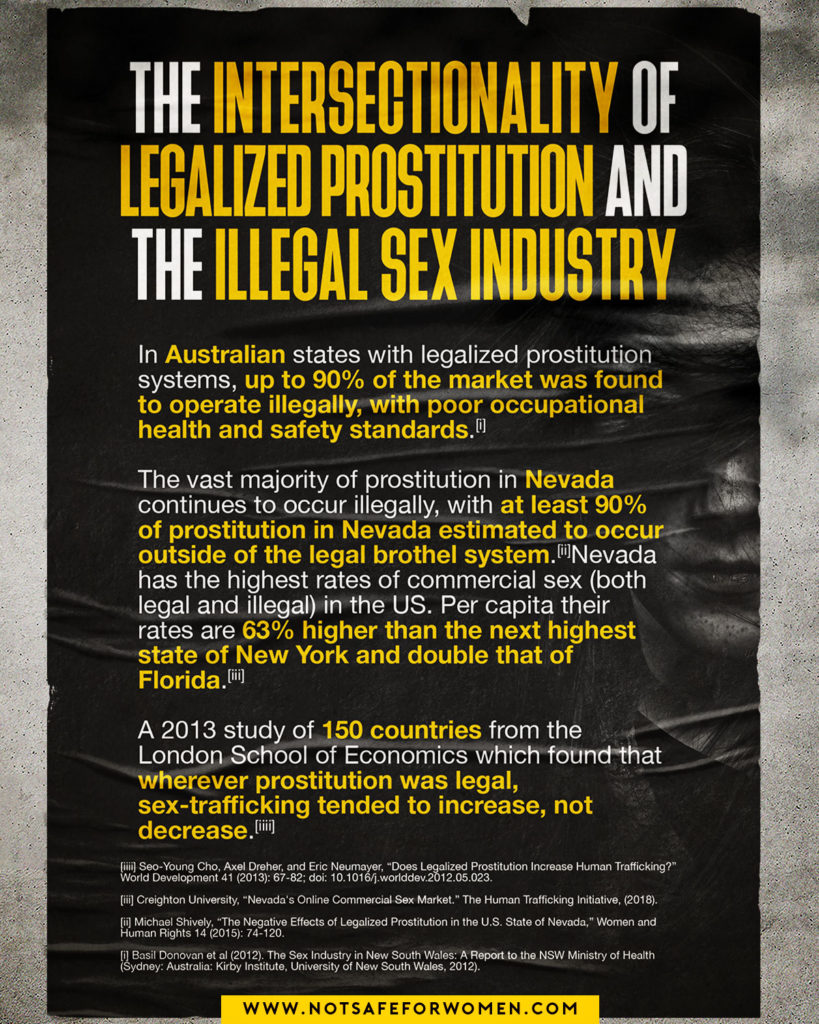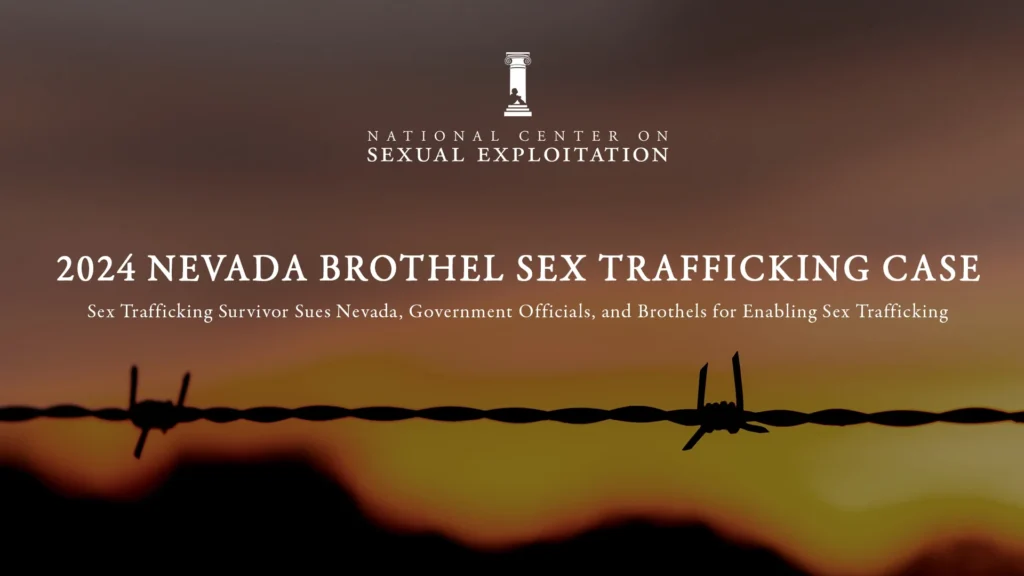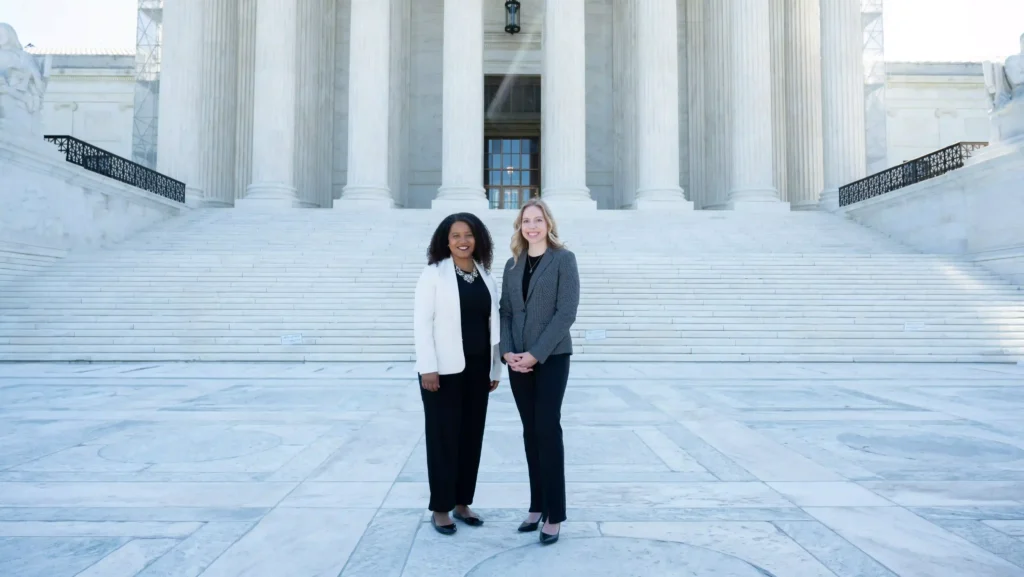End Slavery In Nevada
Pioneering Lawsuit Takes on Nevada's System of Legalized Prostitution
Doe vs Lombardo
Introduction
Jane Doe is one of the countless women who have been exploited and sex trafficked in legal, state-sanctioned Nevada brothels.
Argument
The lawsuit argues that what Jane Doe experienced at the Nevada brothels is a violation of the 13th amendment—it is slavery in the form of sex trafficking.
Desired Outcome
The lawsuit seeks an order that would: 1) void any state or local laws that permit or enable prostitution, 2) declare that providing legal cover for the sex trade is unconstitutional, and 3) provide damages and restitution to the plaintiffs.
Williams vs Sisolak
Introduction
Angela Williams, Jane Doe #1 and Jane Doe #2 were sex trafficked due to Nevada’s system of legalized prostitution and are now seeking to hold the state of Nevada responsible for protecting the commercial sex trade and enabling sex slavery.
Argument
Nevada’s prostitution scheme, including the way it is promoted and advertised, conflicts with tough federal laws that ban sex trafficking as well as the Thirteenth Amendment’s ban on any form of slavery or involuntary servitude upon which the federal anti-trafficking law is grounded.
Desired Outcome
The lawsuit seeks an order that would: 1) void any state or local laws that permit or enable prostitution, 2) declare that providing legal cover for the sex trade is unconstitutional, and 3) provide damages and restitution to the plaintiffs.
The Facts
Research shows that legal prostitution has failed to protect women from sexual exploitation, violence, or psychological trauma and that it has led to a massive illegal sex industry in the state of Nevada. Also, legalized prostitution violates the United States Constitution by enabling slavery.
Meet Jane Doe.
She is one of the countless women who have been exploited and sex trafficked in legal, state-sanctioned Nevada brothels.
“Legalizing prostitution makes it’s safer,” people say.
“It’s a job just like any other,” people say.
Let’s look at what Jane and the other women experienced in these brothels, and we will see if it seems like a normal job.
Spread the Word to End Slavery
Download powerful graphics to share on social media and help spread the word to shut down sex slavery in Nevada
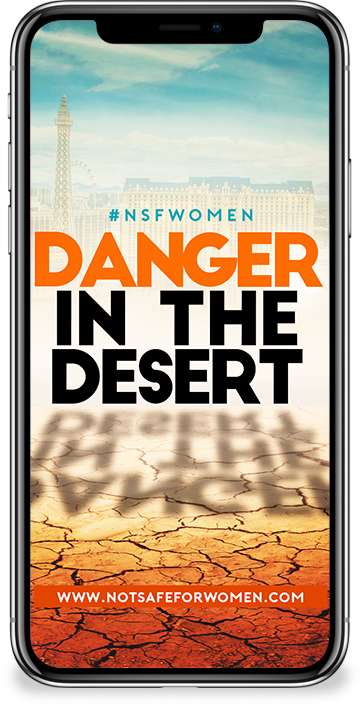
Nevada Is Not Safe For Women
Survivors of sex trafficking have released a blistering video denouncing Nevada for legal prostitution - a legal framework which fuels sexual exploitation and violence.
Share this #NSFWomen Video
The 13th Amendment
What is the 13th Amendment?
The Thirteenth Amendment to the U.S. Constitution forbids all forms of slavery and involuntary servitude from existing in the United States, except as a punishment for crime. It was ratified in 1865 to abolish slavery following the Civil War. Even though slavery was illegal after the Amendment’s ratification, states continued to create conditions of de facto slavery through various laws, including contract laws.
One such Alabama statute made it a crime for anyone “with intent to injure or defraud his employer” to enter into a written contract for services, receive payment, and breach the contract by not performing or returning the money. Bailey v. State of Alabama, 219 U.S. 219, 227-28 (1911) (cleaned up). Alabama maintained that the statute’s purpose was to prevent fraud. The Supreme Court held in Bailey v. State of Alabama that such laws violated the Thirteenth Amendment, because threatening criminal charges for failure to perform a contract was a way to coerce labor through a form of debt bondage.
In short, states cannot use a regulatory system to do indirectly what they cannot do directly. Southern states still could regulate contract law. They just could not regulate it in a way that guaranteed chattel slavery would continue in another form.
A petition for a writ of certiorari asks the US Supreme Court to review the decision of a lower court. In this case, the survivor-plaintiffs, the NCOSE Law Center, and co-counsel Jason Guinasso are asking the Supreme Court to review the disappointing Ninth Circuit ruling
How does the 13th Amendment Apply to Brothels in Nevada?
Nevada is violating the Thirteenth Amendment by creating conditions that enable slavery, specifically in the form of sex trafficking and involuntary sexual servitude. Nevada has provided legal cover for prostitution, which is inextricably intertwined with rape, coercion, and violence. The demand for prostitution leads to sex trafficking.
By making prostitution legal in certain counties, Nevada has given not only local men an incentive to purchase women in prostitution, but given other men a reason to travel to Nevada, which markets itself as a sex tourist destination, and derives a significant percentage of its GDP from tourism. This is called the sex buying demand. When it goes up, so does the number of women “necessary” to supply it, and at least some will be forced to do so.
Men travel to Nevada to buy sex because they incorrectly believe it is legal throughout the state, and the sex industry in Nevada exploits this misconception with impunity, that is, by operating both legal and illegal brothels that violate federal immigration and anti-trafficking law, without facing enforcement from Nevada. Thus, the State of Nevada has violated the Plaintiffs’ constitutional right not to be enslaved, though maintaining a legal scheme that enabled and protected the Nevada sex trade.

Update To The Previous Nevada Case
The National Center on Sexual Exploitation (NCOSE) issued a statement with an update in the lawsuit, Charleston v. Nevada.
Join The Fight
Download powerful graphics to share on social media and help spread the word to shut down sex slavery in Nevada
Your gift today will support survivors of sexual exploitation by funding the efforts to build, publicize, and lead the lawsuit

